Invited Addresses
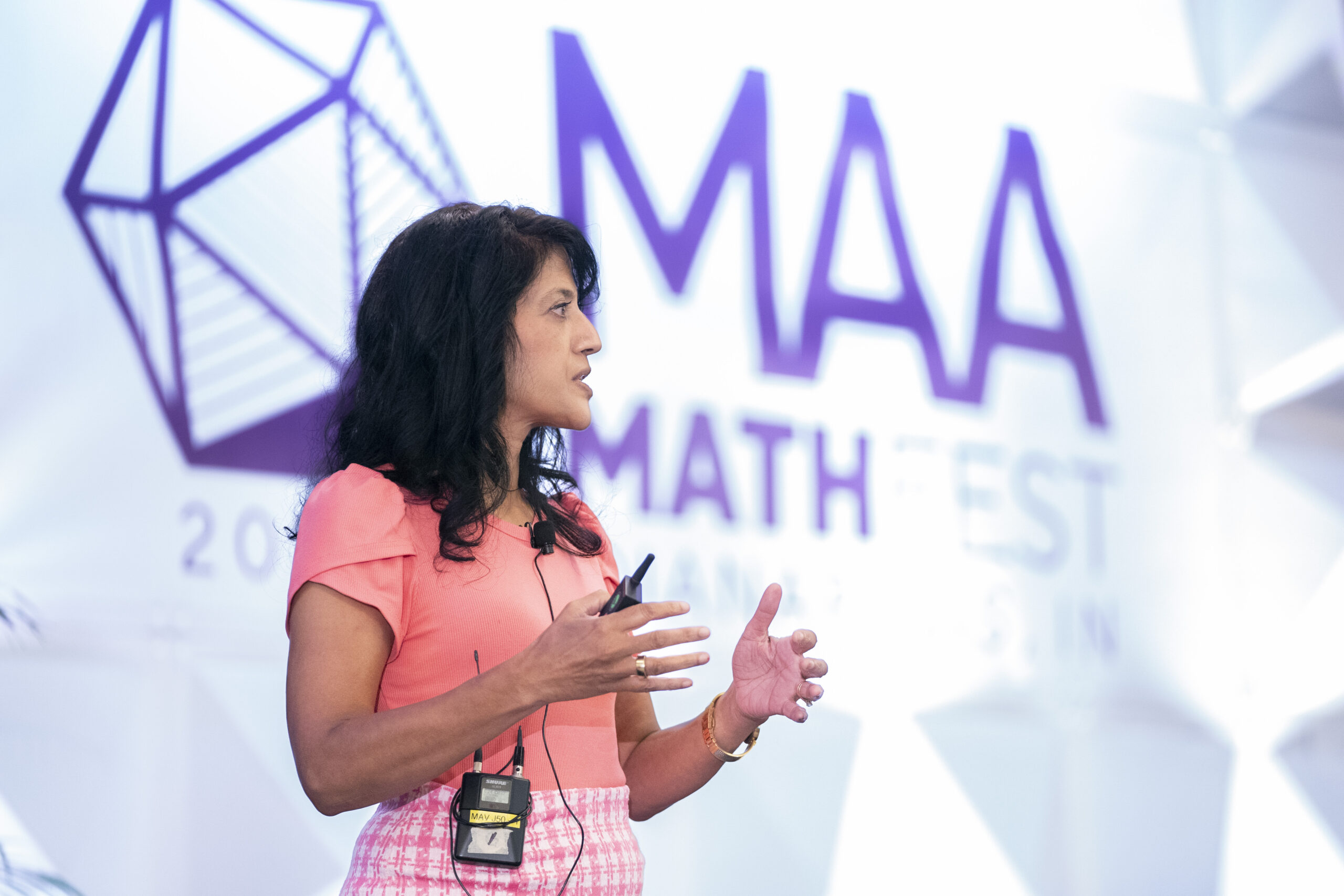
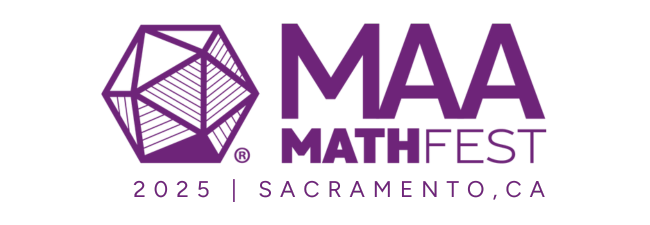
Invited address speakers are experts in the mathematical sciences who are invited and selected by the committee to present at MAA MathFest. Each presenter will share their stories and expertise for 50 minutes with attendees.
MAA Earle Raymond Hedrick Lecture Series
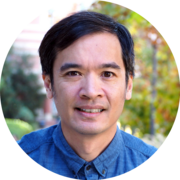
Terence Tao, University of California, Los Angeles
Lecture I: Machine Assisted Proofs
Thursday, August 7, 11:00 am - 11:50 am, Ballroom A1-6
For centuries, mathematicians have relied on computers to perform calculations, to suggest conjectures, and as components of mathematical proofs. In the light of more modern tools such as interactive theorem provers, machine learning algorithms, and generative AI, we are beginning to see machines used in more creative and substantive ways in our work. In this talk we survey some historical and recent developments, and speculate on the future roles of machine assistance in mathematics.
Lecture II: Translational Tilings of Euclidean Space
Friday, August 8, 10:00 am - 10:50 am, Ballroom A1-6
Translational tilings of Euclidean space are a partition of Euclidean space (up to null sets) by translates of one or more tiles. For instance, the famous Penrose tilings are a translational tiling by a finite number of triangles which can only tile the plane non-periodically. One of the outstanding problems in this field is the "periodic tiling conjecture" - if a tile can tile space by translations, must there exist a way to tile space periodically with this tile? Recently, Rachel Greenfeld and I were able to disprove this conjecture in high dimensions, by encoding a certain "Sudoku puzzle" as a tiling problem. We survey this result and other recent progress in this talk.
Biography
Terence Tao was born in Adelaide, Australia in 1975. He has been a professor of mathematics at UCLA since 1999, having completed his PhD under Elias Stein at Princeton in 1996. Tao's areas of research include harmonic analysis, PDE, combinatorics, and number theory. He has received a number of awards, including the Salem Prize in 2000, the Fields Medal in 2006, the MacArthur Fellowship in 2007, the Crafoord prize in 2012, and the Breakthrough Prize in Mathematics in 2015. Terence Tao also holds the James and Carol Collins chair in mathematics at UCLA, and is a Fellow of the Royal Society, the Australian Academy of Sciences, the National Academy of Sciences, and the American Academy of Arts and Sciences. From 2021 to 2024, he served on the President's Council of Advisors on Science and Technology.
Martin Gardner Lecture
Persi Diaconis, Stanford University
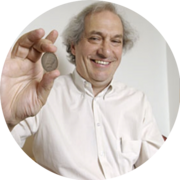
The Magic of Charles Sanders Peirce
Saturday, August 9, 2:00 pm - 2:50 pm, Ballroom A1-6
Charles Peirce was probably Martin Gardner's favorite philosopher. The father of Pragmatism and co-inventor of symbolic logic, he worked as a mathematician, statistician, geologist, and guru, making substantial contributions. He also invented startlingly original (pretty bad) card tricks. BUT, hidden in his inventions were completely new principles which can be made into terrific tricks. I will explain (and illustrate) the best of these, including some hidden mathematics 'in English'. I'll also tell you how you can find out more, by reading Martin Gardner.
Biography
Persi Diaconis is professor of mathematics and statistics at Stanford University. He works in probability, combinatorics and mathematical statistics and loves to study basic questions: why is a coin toss random (and is it really?). How many times should a deck of cards be shuffled to mix it? He is well known for a colorful history; running away from home at age 14 and spending ten years as a professional magician(!). Rescued by Martin Gardner, he became an early winner of a Macarthur prize and a member of the US National Academy of Sciences.
MAA Invited Address
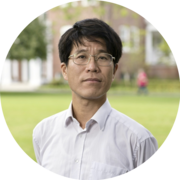
Tadashi Tokieda, Stanford University
Calculating with No Numbers, No Formulas
Friday, August 8, 1:00 pm – 1:50 pm, Ballroom A1-6
People tend to assume, because of the schooling they received as children or of the practical life they lead as adults, that ‘calculation’ means manipulating numbers or formulas — and often that this is what mathematicians do day in, day out. With a magic routine that you can share later with friends and family, I shall show that there is a world beyond this.
Biography
Tadashi Tokieda grew up as a painter in Japan, became a classical philologist (not to be confused with philosopher) in France, and has been a mathematician in Europe and the USA. He is also active in outreach, especially via the African Institute for Mathematical Sciences (AIMS) and the Youtube channel Numberphile.
Chan Stanek Ross Lecture for Students
Skip Garibaldi, IDA Center for Communications Research, La Jolla

A Better Way to Buy Lottery Scratch-off Tickets
Saturday, August 9, 1:00 pm – 1:50 pm, Ballroom A1-6
You may have seen news stories about people who seem to be strategically and systematically buying up lottery scratch-off tickets. What might they have been up to? This talk is about the answer proposed by a reporter, which defies the intuition we learn in school. With a little calculus, we can analyze the idea and see how it might play out in reality.
Biography
Skip Garibaldi is a mathematician who has been writing scholarly articles about the lottery for 15 years. His lottery work has led to changes in state policy, law enforcement investigations, TV interviews, and a video for Wired. Some mathematicians will know him better for his work on algebraic groups. Skip is the director of the IDA Center for Communications Research in La Jolla, California. Previously, he was associate director of the Institute for Pure & Applied Mathematics at UCLA and Winship Distinguish Research Professor at Emory University. He is a Fellow of the American Mathematical Society and has received the Lester R. Ford Award and the Air Force Commander’s Public Service Award. He grew up just down the road from MathFest, in neighboring Solano County. He sometimes buys lottery tickets.
MAA James R.C. Leitzel Lecture
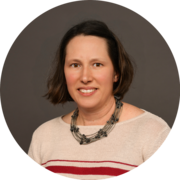
Tara Holm, Cornell University
Pay It Forward: Practice and Progress in Post-Secondary Mathematics Education
Friday, August 8, 11:00 am – 11:50 am, Ballroom A1-6
I will share vignettes from my time as a student, a nascent instructor, a practiced professor, and a community leader. A key theme running through these is providing all students with mathematical experiences that help them achieve their aspirations. To accomplish this, we must make a coordinated effort across the broad mathematics community. This process begins by assessing our current curriculum and pedagogy. We identify innovative practices and pathways for students. These must then be adapted and scaled to suit local needs. I hope this will be the beginning of a conversation about how we can advance our community of practice, for the sake of our students’ futures.
Biography
Tara Holm earned her undergraduate degree in mathematics at Dartmouth College and her PhD at MIT. She has been an NSF postdoctoral fellow at UC Berkeley, an Assistant Professor at the University of Connecticut, and is currently Professor and Chair of the Department of Mathematics at Cornell University. Holm’s research focuses on symplectic geometry and its connections to algebraic geometry, topology, and combinatorics. She has been a Simons Fellow and Smithies Lecturer at Balliol College, Oxford; a von Neumann Fellow at the Institute for Advanced Study; and a Visiting Fellow at Clare Hall, Cambridge. She currently serves on the Board of Transforming Post-Secondary Education in Mathematics (tpsemath.org) and as the President of Pro Mathematica Arte, the non-profit corporation that runs the Budapest Semesters in Mathematics. She is a Fellow of the American Mathematical Society and has been awarded Cornell’s Morgan Chia-Wen Sze and Bobbi Josephine Hernandez Distinguished Teaching Prize.
MAA Invited Address
Federico Ardila-Mantilla, San Francisco State University
** Photo Credit: May-Li Khoe
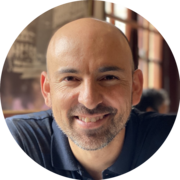
Intersection Theory and Combinatorics: Variations on a Theme
Thursday, August 7, 1:00 pm – 1:50 pm, Ballroom A1-6
My talk will discuss some beautiful objects at the intersection of combinatorics, geometry, and algebra called "Chow rings of toric varieties”. I will discuss three ways of thinking about them: they can be approached using algebra, polyhedral geometry, or numerical analysis. I will then explain how combinatorialists have recently used these rings to prove several conjectures from the 1970s and 80s about the colorings of a map.
My talk will not assume that you know anything about these objects. I will talk about the work of many people, including my joint work with Carly Klivans, Graham Denham, and June Huh.
Biography
Federico Ardila-Mantilla is a Colombian-American mathematician and musician who works in combinatorics and geometry. He was an ICM 2022 speaker and has received the NSF CAREER Award for research, the MAA National Haimo Award for teaching, and the AMS "Mathematics Programs that Make a Difference" Award for service. He serves as Professor at San Francisco State University and founder of the SFSU-Colombia Combinatorics Initiative, and co-directed the MSRI-UP REU program for students from minoritized groups, and has mentored more than 50 thesis students. Federico is always searching for ways to grow and foster an increasingly diverse, equitable, welcoming, and joyful community of mathematicians that empowers and serves the needs of all.
AMS-MAA Joint Invited Address
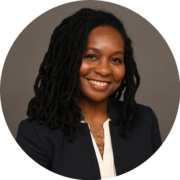
Naiomi Cameron, Spelman College
Combinatorial Approaches to Matrix Functions
Saturday, August 9, 10:00 am – 10:50 am, Ballroom A1-6
For a wide variety of problems in both pure and applied mathematics, the interplay between linear algebra and combinatorics can be key to finding solutions to interesting problems, and moreover, may present opportunities for unexpected discovery and insight. This talk will explore some of my favorite examples of this interplay, where combinatorial approaches to matrix functions, identities, and/or groups are invoked to help illuminate problems varying from lattice path enumeration to finding optimal strategies for integer choice games.
Biography
Dr. Naiomi Cameron is a Professor of Mathematics at Spelman College in Atlanta, GA where she began as an Associate Professor in 2019 and became Chair of Mathematics in 2022. She earned both a B.S. and Ph.D. in Mathematics from Howard University. Dr. Cameron’s research interests are mainly focused in enumerative and algebraic combinatorics where she seeks to use combinatorial insights to illuminate algebraic structure. Before joining Spelman, she served as Associate Dean for Faculty Development from 2017 to 2019 at Lewis & Clark College, where she was on the faculty for thirteen years. She has served on numerous committees and boards for national organizations, including the National Association of Mathematicians, the Mathematical Association of America and the American Mathematical Society. From 2019 to 2022, she served as Vice President and Chair of the Program Committee for the National Association of Mathematicians.
MAA Invited Address
Beth Malmskog, Colorado College
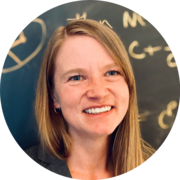
Squaring the Quilting Circle
Thursday, August 7, 10:00 am – 10:50 am, Ballroom A1-6
A few years ago, I received an email from a friend’s mom with a question about a problem she was having with her quilting circle: is it possible to find a way to pass quilts among five people so that each person works on each quilt, and no person passes to the same person twice? The pursuit of an answer led to row-complete Latin squares. Latin squares are combinatorial objects with a thousand-year history and modern applications in experimental design, error correcting codes, and entertainment, in the form of Sudoku. The journey doesn’t stop there, though; this talk will describe how one simple problem connects quilting, taste testing, combinatorics, group theory, graph theory, number theory, music, Tom and Jerry, and the power/limits of modern computing. We will begin with a quilt and conclude with some music and a number of related open problems.
Biography
Beth Malmskog is an associate professor in the department of Mathematics and Computer Science at Colorado College. She studied mathematics as an undergraduate at the University of Wyoming and earned her PhD at Colorado State University. Beth’s research crosses and combines perspectives, including arithmetic geometry, error-correcting codes, Latin squares, graph theory, fair redistricting, and cryptography. She is dedicated to building community and expanding opportunity in and through mathematics, via teaching, research collaboration, and outreach. She and Kathryn Haymaker won the Carl B. Allendorfer award in 2020 for their paper “What (Quilting) Circles Can Be Squared?”. Beth’s research has earned an NSA Young Investigator grant and an NSF Launching Early Academic Pathways (LEAPS) award.
AWM-MAA Etta Zuber Falconer Lecture
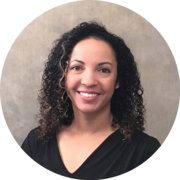
Olivia Prosper Feldman, University of Tennessee
Modeling Malaria at Multiple Scales: Implications for Parasite Diversity
Thursday, August 7, 9:00 am – 9:50 am, Ballroom A1-6
Malaria remains a major global health challenge, driven by the complex interactions between parasites, their human and mosquito hosts, and the environments they inhabit. Since the pioneering work of Sir Ronald Ross and George Macdonald in the early to mid-20th century, mathematical modeling has provided invaluable insights into malaria transmission, from within-host parasite dynamics to population-level epidemiology. More recently, research has focused on how these scales interact, shaping transmission patterns and informing control strategies.
In this talk, I will introduce an individual-based model that integrates within-mosquito and within-human parasite dynamics with population-level transmission. This model also tracks the genetic signatures of parasites, offering insights into how genetic diversity emerges, spreads, and interacts with human immunity and antimalarial treatment. By bridging multiple scales, this approach aims to deepen our understanding of malaria transmission and inform more effective intervention strategies.
Biography
Dr. Olivia (Prosper) Feldman is an Associate Professor of Mathematics whose research sits at the intersection of mathematics and biology, with a particular focus on infectious disease modeling. She earned her Ph.D. in Mathematics from the University of Florida in 2012, followed by a postdoctoral fellowship at Dartmouth College and an assistant professorship at the University of Kentucky. Currently at the University of Tennessee, Dr. Feldman has received numerous accolades, including an NSF CAREER award, the Intercollegiate Biomathematics Alliance Excellence in Research award, and the university’s Professional Promise in Research & Creative Achievement award.
Her research explores the complex dynamics of infectious diseases, using mathematical modeling to understand how heterogeneities influence disease spread and control measures. Her work spans multiple scales, from within-host parasite dynamics to population-level transmission, with applications in vector-borne diseases such as malaria. Recent projects investigate the role of economics in disease transmission, the spread of drug-resistant pathogens, the evolution of parasite diversity within vectors, and the impact of immunity on disease prevalence. Dr. Feldman is also advancing methodologies to enhance the identifiability of epidemiological models, strengthening their predictive power for public health interventions. Through her interdisciplinary approach, Dr. Feldman continues to advance mathematical epidemiology, providing critical insights into disease dynamics and informing strategies for disease control.
Christine Darden Lecture
Dawn Lott, Delaware State University
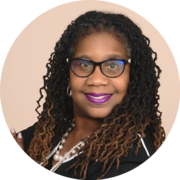
PEIRE – A Model for the Transfer of Information and Decision Making
Thursday, August 7, 2:00 pm – 2:50 pm, Ballroom A1-6
Investigating transfer of information between entities can play an instrumental role in understanding the decision-making process. The decision-making process can be assisted greatly when humans employ computational models that can leverage new information systems. We seek to leverage models of biological processes in an ongoing work on transfer of information system. In this work, we introduce the PEIRE model for the transfer of information. Here, information refers to heterogeneous message types and processing informative messages is treated like the spread of a virus. This model is an adaptation of the SEIR (Susceptible-Exposed-Infectious-Removed) mathematical algorithm. The model treats compartments as various stages of the processing of information. This approach allows us to determine how the breakdown of information might affect the decision-making process and how the decision-making process might then affect the transformation of information in a system. We also discuss the applicability of the model in artificial reasoning related to decision-making.
Biography
Dr. Dawn A. Lott is a full professor of Applied Mathematics at Delaware State University, Dover, DE in the Division of Physics, Engineering, Mathematics and Computer Science. Dr. Lott earned a Ph.D. in Engineering Sciences and Applied Mathematics from Northwestern University in 1994. Her research area includes but is not limited to the numerical solutions of partial differential equations that model fluid and solid mechanics. Dr. Lott has received the Faculty Excellence Award in Advising and the Faculty Excellence Award in Service from DSU. She is a 2021 Fellow of the Association for Women in Mathematics (FAWM) and a 2019 honoree of Mathematically, Gifted and Black, by the Network of Minorities in Mathematical Sciences. She has served as the Vice President of the National Association of Mathematicians (2005-2013) and on the Board of Directors of the Mathematical Association of America (2010-2013). Dr. Lott has served on numerous committees for the Association for Women in Mathematics, the Mathematical Association of America, the Society for Industrial and Applied Mathematics, the National Alliance for Doctoral Studies, and Enhancing Diversity through Graduate Education. Internationally, Dr. Lott is on the Board of Directors for the INTERNATIONAL INSTITUTE OF ENGINEERING, SCIENCE, ARTS AND TECHNOLOGY (INIESAT), Biyem-assi Ecole, Yaounde, Cameroon. She held the position of Visiting Assistant Professor at the Changchun University of Science and Technology in Changchun, China in 2016. In addition to university commitments, Dr. Lott now conducts research on decision making as a contractor of the Army Research Laboratory in Command and Control.
NAM David Harold Blackwell Lecture
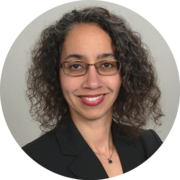
Talitha Washington, Howard University
100 Years of Inspiration: Elbert Frank Cox and the Future of Mathematics
Saturday, August 9, 11:00 am – 11:50 am, Ballroom A1-6
In 1925, Elbert Frank Cox became the first Black person in the world to earn a Ph.D. in mathematics, paving the way for future generations. His journey was defined by resilience and an unwavering commitment to knowledge despite the barriers of segregation. This talk honors his legacy and explores how his impact continues to inspire the mathematical community a century later.
Biography
Dr. Talitha Washington serves as the Executive Director of the Center for Applied Data Science & Analytics, the Sean McCleese Endowed Chair in Computer Science, Race, and Social Justice, and a Professor of Mathematics at Howard University. She is also the Past-President of the Association for Women in Mathematics (AWM) and previously served as a Program Director at the U.S. National Science Foundation (NSF). Dr. Washington's research spans applied mathematics, dynamical systems, nonstandard finite difference schemes, data science, artificial intelligence, and education. She completed her undergraduate studies in mathematics at Spelman College, studied abroad at the Universidad Autónoma de Guadalajara in Mexico, and earned her master’s and doctoral degrees from the University of Connecticut, which also awarded her an honorary doctorate in science. She is a Fellow of the AWM, the American Mathematical Society (AMS), and the American Association for the Advancement of Science (AAAS).
MAA President Retiring Address
Hortensia Soto, Colorado State University

In Service, For Service, … To Serve
Wednesday, August 6, 5:40 pm – 6:30 pm, Ballroom A1-6
A common phrase used in Spanish is de qué sirve. It literally translates to, “Of what does it serve?” The phrase is also used to ask or question such as: what is the point, what is the use, what difference does it make make, what is it used for, how does it help, etc. Without knowing this phrase has been engrained in my professional life with teaching, conducting research, and engaging in service. In this presentation, I want to discuss de qué sirve to be a member of the MAA. As part of this (hopefully engaging) conversation, I will share how the MAA nos sirve in various ways.
Biography
Hortensia (Tensia) Soto is a Professor and Graduate Director in the Department of Mathematics at Colorado State University. Her research centers on the teaching and learning of K-16 mathematics where she adopts an embodied cognition perspective. Hortensia has mentored young women and promoted mathematics via summer outreach programs and frequently facilitates professional development for K-16 teachers. Tensia is a working member of the Mathematical Association of America (MAA) where she has served as the Associate Treasurer, the Associate Secretary, as an editor of the MAA Instructional Practices Guide, and MAA President. She is a proud recipient of the MAA Deborah and Franklin Tepper Haimo Award for Distinguished College or University Teaching of Mathematics. In her spare time, Hortensia enjoys hiking, snowshoeing, practicing yoga, meditating, and spending time with her son Miguel.
Student Activity Speaker
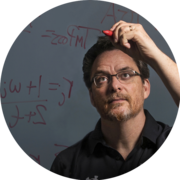
Tim Chartier, Davidson College
Exponential Party Fun
Friday, August 8, 2:00 pm – 2:50 pm, Ballroom A1-6
Turn your gatherings into unforgettable experiences with mathematically entertaining tricks! Join Tim Chartier for an interactive and engaging session filled with math-based antics and puzzles. Perfect for any occasion, you’ll learn clever tricks and crowd-pleasing skills that bring the magic of mathematics to life. Whether you’re mingling at a school or networking at a conference, these entertaining ideas will make you the life of the party. Don’t miss out on this opportunity to add a dash of math to your social repertoire!
Biography
Dr. Tim Chartier is the Joseph R. Morton Professor of Mathematics and Computer Science at Davidson College who specializes in data analytics. He consults with ESPN, The New York Times, the US Olympic Committee and professional teams in the NBA, MLB, NFL and NASCAR. Beyond authoring books such as Get in the Game: An Interactive Introduction to Sports Analytics and Nonstandard Notebook: Mathematically Ruled Pages for Unruly Thoughts, Tim has worked on Google and Pixar educational initiatives. Tim's authorship, research, and scholarship have been recognized with national leadership positions in the MAA and multiple awards including an Alfred P. Sloan Research Fellowship, The MAA SE Distinguished Teaching Award and the MAA’s Euler Book Award. Tim is also a performing artist having trained in mime at Le Centre du Silence mime school and Dell’Arte School of International Physical Theater. He also studied in master classes with Marcel Marceau. Along with his wife Tanya, Tim has performed a mime presentation that introduces mathematical ideas throughout the United States and in such countries as Switzerland, France, Panama, Holland, Korea and Japan.
All sessions are listed in Pacific Daylight Time (PDT = UTC-7:00) and located on the Second Floor of the SAFE Credit Union Sacramento Convention Center unless otherwise specified.